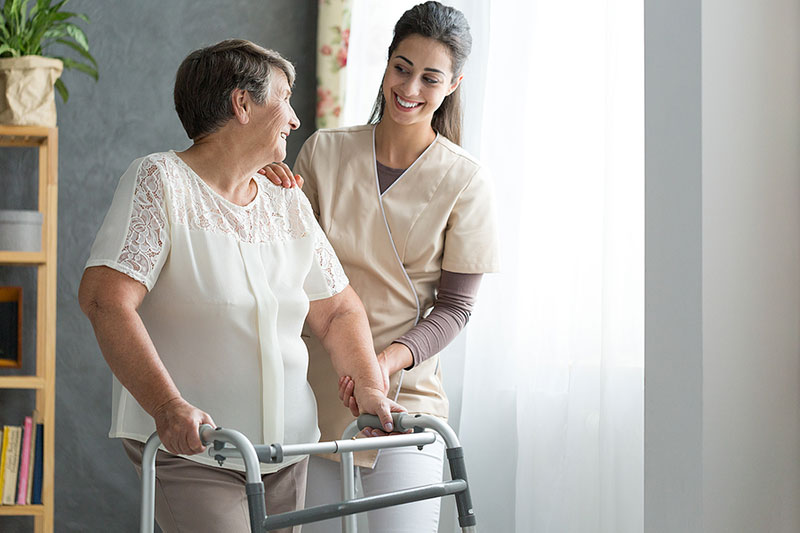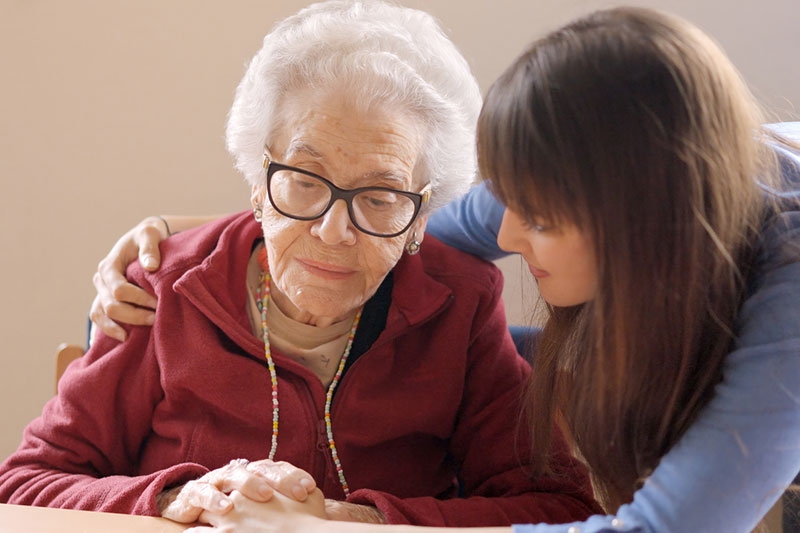
Depression in Elderly Parents: What to Look for and How to Help
Statistics show that depression is a common concern among elderly parents. According to the National Council on Aging (NCOA), 1% to 5% of older adults experience major depression. However, these percentages are more than double for those who have been hospitalized (11.5%) and those who require home health care (13.5%). Fortunately, there are ways to manage depression in elderly parents. Learn what signs to watch for and how hiring an in-home caregiver could make all the difference for you and your family.
Common Causes of Depression in Elderly Parents
So, what leads to depression among the elderly? There are several factors that can cause your parent (or parents) to feel the blues:
- Physical health issues: As people age, chronic illnesses, pain, and limited mobility become more prevalent. These can hinder your elderly parents’ ability to take part in day-to-day activities, causing them to feel less zest for life.
- Loneliness and isolation: Aging can lead to outliving family members, spouses, and friends. These losses can create feelings of isolation and loneliness. For elderly people who live alone, this can take a serious toll on their mental health.
- Life transitions: Major life changes, such as retirement or relocating to an assisted living facility, can have a major emotional impact. These events can cause a loss of routine, identity, and independence, leading to feelings of helplessness, frustration, and depression.
- Medication side effects: Medications can also play a role in the development or worsening of depression in older adults. Prescriptions for conditions like hypertension, pain management, and insomnia may have side effects that include mood changes or feelings of sadness.
- Cognitive decline: Alzheimer’s disease or other forms of dementia can lead to feelings of frustration, anxiety, and depression. As cognitive function declines, individuals may struggle to remember things, communicate, or handle simple tasks affecting their emotional well-being.
Signs of Depression in the Elderly
If you notice any of the following warning signs, you may be dealing with a depressed elderly parent:
- Emotional symptoms: Look for signs of prolonged sadness, hopelessness, or irritability that don’t seem to subside. Many seniors may also become tearful without an obvious cause, expressing feelings of emptiness or despair.
- Physical symptoms: Pay close attention to changes in sleep patterns, such as trouble falling asleep, staying asleep, or sleeping too much. Similarly, a noticeable change in appetite—either loss of appetite or overeating—can be a red flag.
- Social withdrawal: An obvious sign of depression in elderly parents is withdrawal. Seniors experiencing depression may stop engaging in activities they once enjoyed and may also avoid family and friends, leading to feelings of isolation.
- Neglecting personal care: When depression hits, even mundane tasks can feel like too much. Your loved one may stop taking care of their appearance, such as skipping showers, wearing the same clothes for multiple days in a row, or neglecting dental hygiene.
- Cognitive symptoms: Your loved one may have a hard time concentrating, remembering things, or making decisions. They may also struggle with simple tasks that were once easy, leading to frustration or confusion. Often signs of dementia, these symptoms can be signs of depression as well. It’s best to speak with a medical professional to determine the underlying cause.
How CareBuilders at Home Can Help Your Loved One
Dealing with a depressed elderly parent can feel overwhelming—but it doesn’t have to be. With CareBuilders at Home, our companion care services can help your depressed parent begin to feel like themselves again. Your senior loved one will be matched with a dedicated caregiver who can help with meal preparation, light housekeeping, pet and plant care, travel to appointments and errands, medication reminders, companionship, and more.
We also have our state-of-the-art virtual caregiver program, which turns any normal television into an easy-to-use communication device allowing your loved one to connect with family, friends, and your CareBuilders at Home team. The best part? All of our services—including our virtual caregiver program—are a la carte, meaning we work directly with you to create a care plan that’s specific to your loved one’s unique needs.
To learn more about how our team can help you and your family, contact us today. Once we’ve received your inquiry, a member of our team will be in touch with you to discuss care options.







